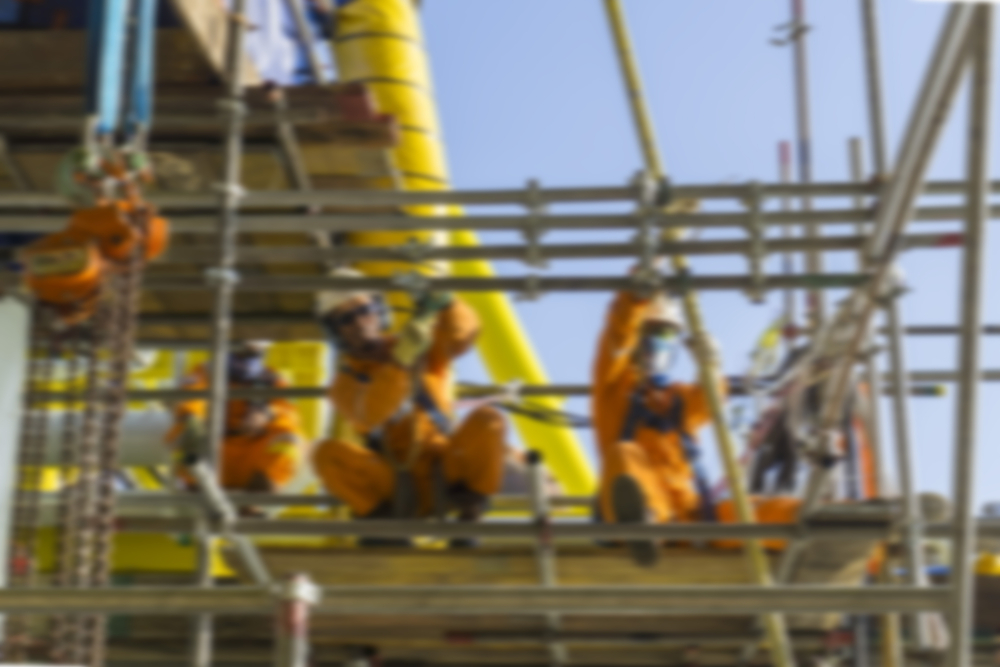News - Construction News
Falling from height workplace injuries

Following the recent tragic news of Gogglebox star, George Gilbey’s death is a stark reminder of the safety risks on a construction site. John Kushnick, Legal Operations Director of National Accident Helpline says:
“Falling from height is the leading cause of fatal injuries to employees in the UK, according to government statistics. The latest HSE report on British construction has highlighted critical health and safety issues with reports of 69,000 workers with work-related ill health, 45 fatal injuries, and 53,000 non-fatal injuries for 2023.
It is an employer’s duty to promote a culture of health and safety and follow the right procedures to prevent their employees from suffering injuries at work.
Employers should consider practical measures to prevent similar incidents, as well as paying close attention to the Work at Height regulations and guidance issued by the Health & Safety Executive.
Following robust health and safety policies, providing adequate training and supervision, running regularly and thorough risk assessments, and having open and effective lines of communication with staff and adopting a culture of continuous improvement in processes, are all measures that construction companies can and should be taking to improve their standards of care and safety.
The Work at Height regulations are a crucial piece of legislation aimed at protecting workers who perform tasks at heights. The regulations apply if someone is working on a ladder, a flat roof or where fragile surfaces are present but also where workers could fall into an opening in the floor or a hole in the ground.
If a construction worker suffers an injury or dies due to an accident on site and it was not their fault, they – or in the event of death – their family, are entitled to seek compensation for their physical, emotional, and financial losses.
Our new National Accident Helpline survey found that 41% of Brits have suffered at least one of the three most common accidents that occur at work, and which are most likely to lead to compensation.
However, amongst those surveyed who had suffered an accident that wasn’t their fault, two thirds of respondents (68%) said they did not make a claim. With the cost-of-living crisis continuing to bite, 43% of this number confessed they were worried about making a claim against their employer due to the impact it could have on their career or their relationship with their employer.
However, workers should feel assured that it’s illegal for companies to fire their employees for making a personal injury claim.
How can employers avoid similar incidents happening in the future?
To prevent similar incidents in the future, employers must prioritise their employees’ safety and well-being. Here are some steps they can take:
- Set up strong health and safety policies: Make sure these policies fit the specific industry and work environment. Regular updates are crucial to keep up with changing risks.
- Provide proper training and supervision: Ensure workers know safety procedures, how to spot hazards, and use protective gear. Supervision during on-the-job training is vital for safety.
- Conduct thorough risk assessments: Regularly assess risks and involve employees in the process to gain insights and promote a safety-first culture.
- Keep communication open: Encourage employees to report safety concerns promptly. An open reporting culture can prevent accidents.
- Learn from mistakes: Investigate near misses and accidents, implement fixes, and share lessons across the organisation for continuous improvement.
How can employees claim compensation for an injury suffered through an accident at work?
Report the incident immediately and seek medical attention. Ensure that a written record of the incident is created, and keep a record of all the treatment, care, and expenses related to the accident.
Gather evidence such as photos and witness names, and any other relevant information to prove what happened.
Get legal advice from a personal injury lawyer specialising in workplace accidents. Most offer free initial assessments. If there’s a viable claim, the lawyer can support on a no-win, no-fee basis, handling paperwork, and negotiating fair compensation.
Remember, it’s illegal to fire employees for making a personal injury claim, despite there being worries amongst workers about job security.
By prioritising safety and knowing their rights, employees can navigate workplace accidents with confidence.”
If you would like to read more stories like this, then please click here
Related Articles
More News
- Building Britain: Ibstock ready to play their part in getting Britain building again
25 Jul 24
After Labour’s landslide win in July’s General Election, incumbent Chancellor of the Exchequer Rachel Reeves
- Get Britain Building
24 Jul 24
The King said: "My ministers will get Britain building.
- Cool roofs are best at beating cities’ heat
23 Jul 24
Painting roofs white or covering them with a reflective coating would be more effective at






